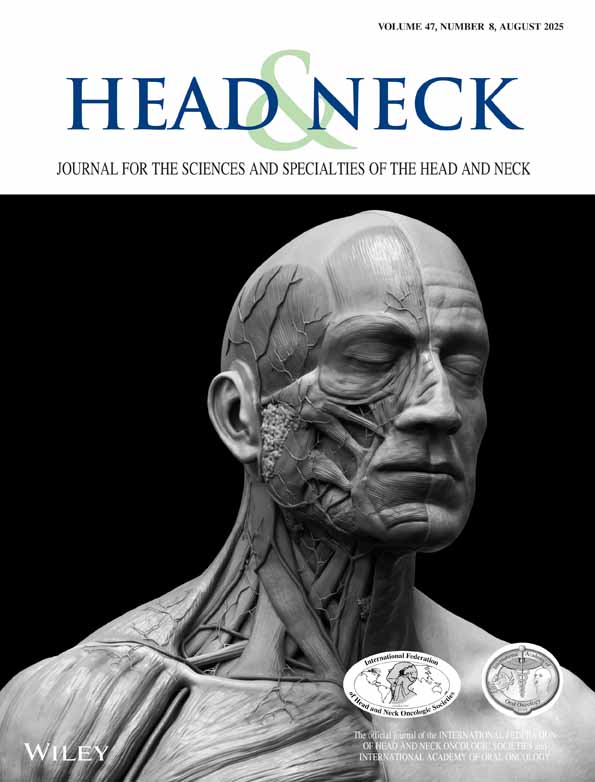Tumor markers in the diagnosis and follow-up of head and neck cancer: Role of CEA, CA 19-9, SCC, TK, and dttpase
Abstract
The clinical relevance of the carcinoembryonic antigen (CEA), carbohydrate antigen (CA) 19-9, squamous cell carcinoma antigen (SCC), thymidine kinase (TK), and deoxythymidine-5′-triphosphatase (dTTPase) as tumor markers in the diagnosis and follow-up treatment of 26 patients with head and neck cancer is evaluated. Serum levels prior to treatment were found elevated just above the upper limit of normal in 46% (SCC), 15% (CEA), 12% (CA 19-9), 27% (TK), and 39% (dTTPase) of all patients. If all markers were taken into account, they were elevated in 73% of the untreated patients. However, only in a few cases were the tumor marker values elevated significantly (8%–12%). No significant correlation was detected between serum levels and tumor localization, staging, grading, or performance status for any of the markers. In the follow-up none of the markers tested revealed any disease-related information despite therapy variation. Patients with originally elevated marker levels showed decreasing and in some cases increasing values after primary therapy, although no tumor recurrence was detected. Even considering the results as preliminary due to the rather small sample size, they suggest that the routine assessment of CEA, CA 19-9, SCC, TK, and dTTPase serum levels is of limited practical value.




